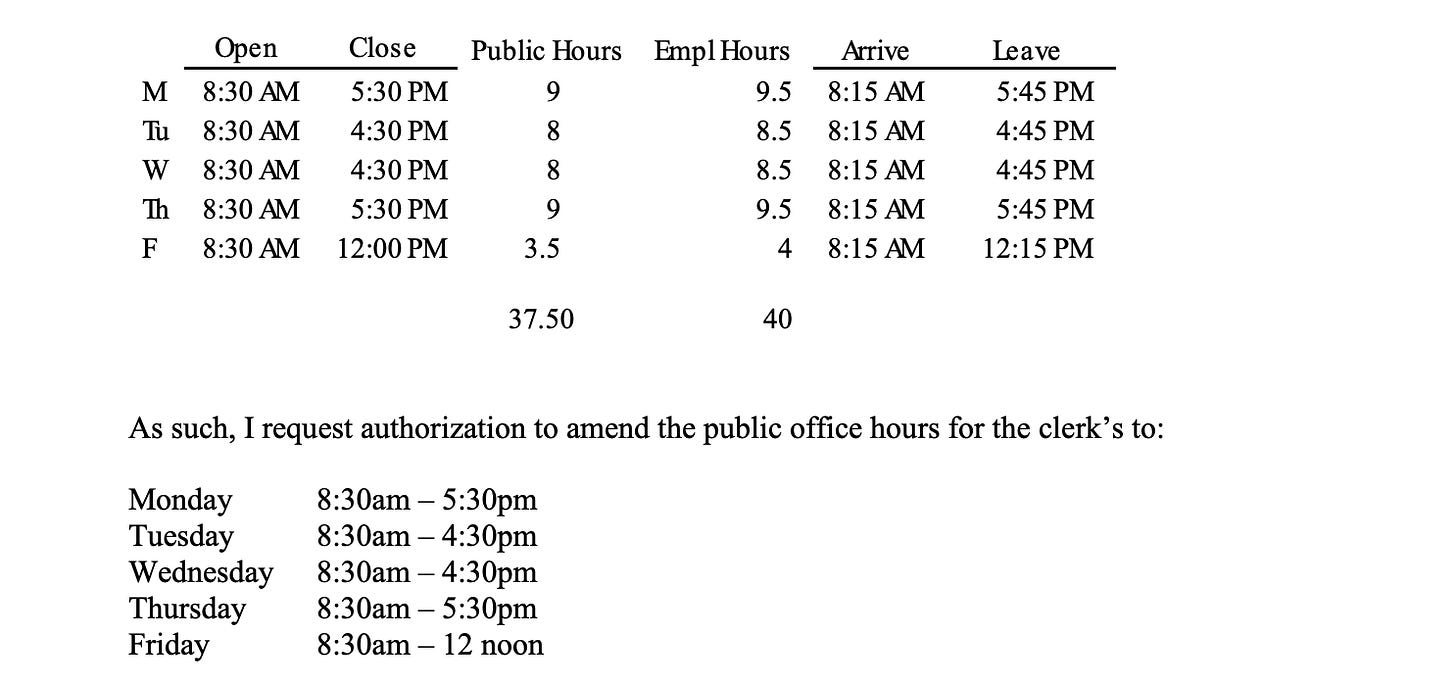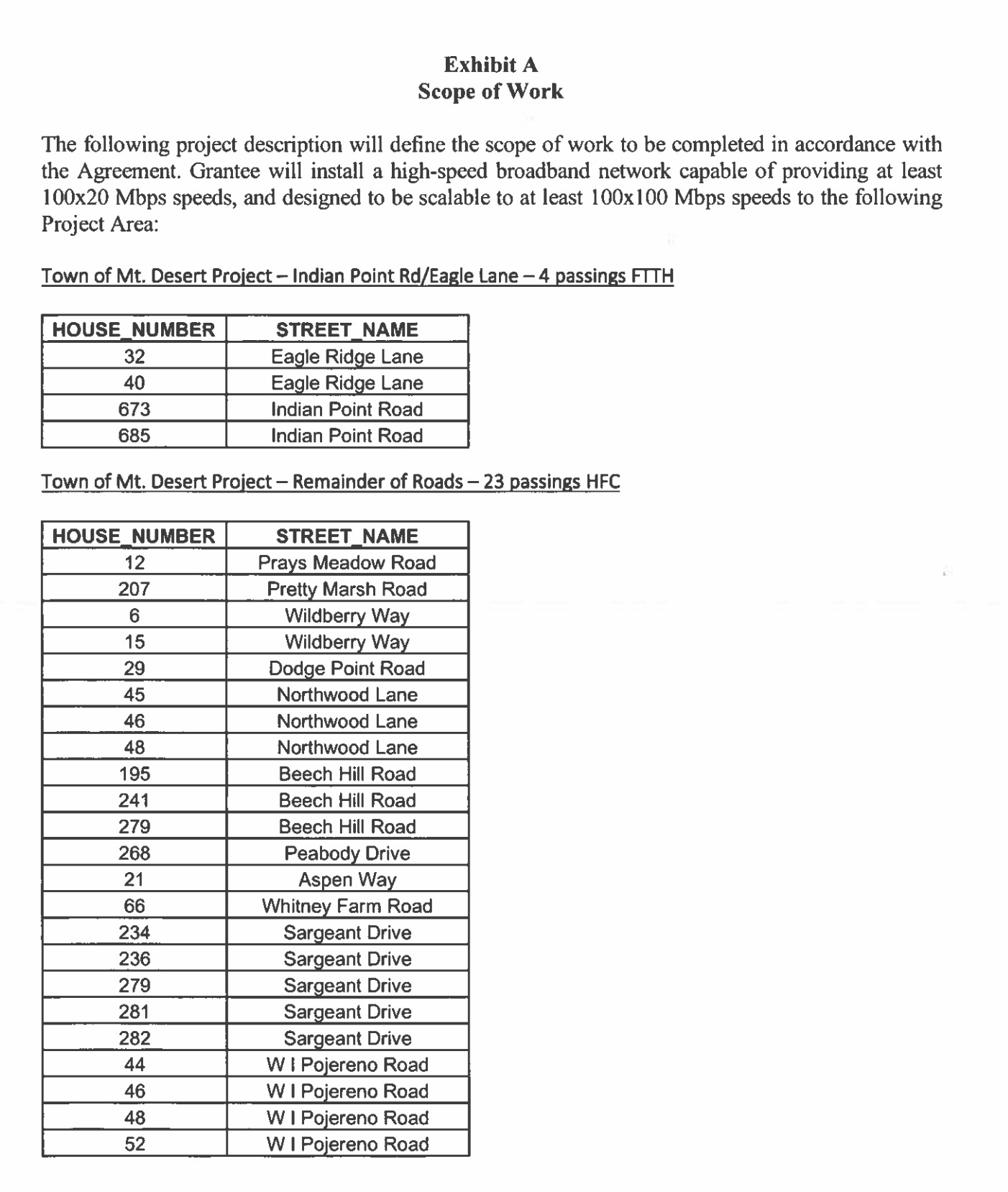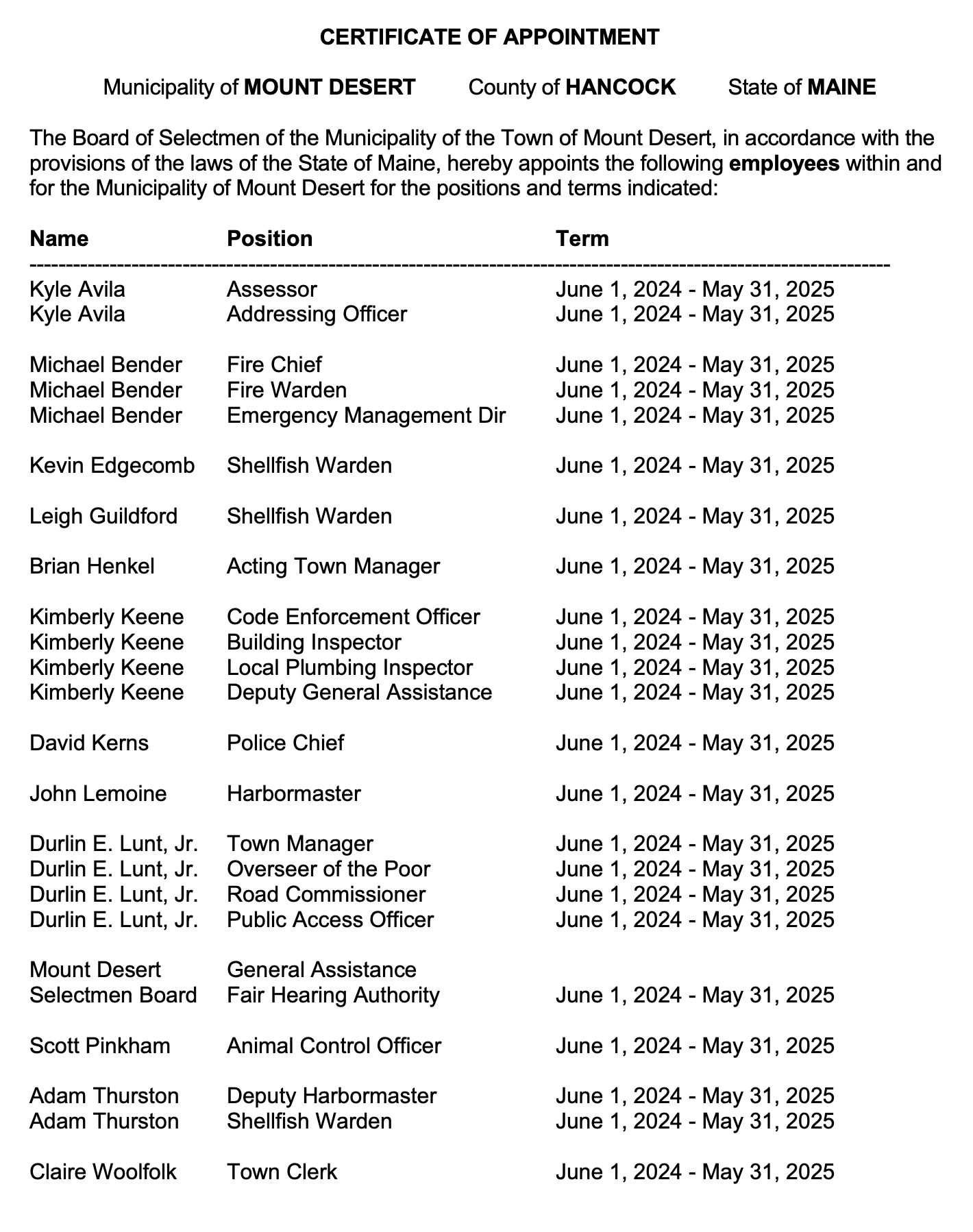Town Can Not Charge Residents for Certain Ambulance Calls, But Can’t Take Care of Phone Lines Dangling on Trees

MAY 21, 2024

MOUNT DESERT—The Mount Desert Selectboard made quick work of its meeting on May 20, 2024, unanimously moving multiple items forward after spending approximately 10 minutes in executive session to discuss the Affordable Care Act.
AMBULANCE SERVICES AND FIRE DEPARTMENT
The short meeting included some good news for some residents.
In a memo from Fire Chief Mike Bender, the chief suggested that despite new state legislation that allows ambulance services to bill for selected emergency calls that don’t require emergency transport, that the town continue to not bill for those non-transport emergency calls, a practice that also occurs in Bar Harbor. The Mount Desert Selectboard agreed.
“Although, we do bring in some revenue from EMS transport, most of the funding to provide EMS services to the town is paid from local taxes,” Chief Bender wrote in a May 1 memo. “Plus, the added expense for the additional billing may not be offset with any increase in revenue.”
Selectboard member Martha Dudman commended the chief for the decision.
“It just made sense, thank you,” Chief Bender said.
The Board also approved the conditional monetary gift of $21,000 from the Northeast Harbor Ambulance Service to the fire department to buy a Lund University Cardiopulmonary Assist System (LUCAS). This is a portable chest compression system, which administers automated chest compressions.
“The fire department currently has one LUCAS in service, which is normally kept at station #3 in Somesville. A second one will enable us to keep one on each of our two ambulances, located at the Somesville and Northeast Harbor stations. Sudden cardiac arrest is a medical emergency that demands immediate action and the importance of high-quality CPR within the first few minutes cannot be overstated. Having two of these devices in each of the described locations will allow for reduced response times for these types of calls,” Chief Bender explained in a May 1 memo.
The Selectboard also approved the sale of surplus equipment, a 2011 Ford F-350, two breathing air storage bottles and a Bauer hydraulic breathing air compressor, and entering an agreement for $15,000 of office furniture.
“What are you doing in the meantime? Sitting on the floor?” Dudman asked.
“We’re using folding tables and chairs,” Bender said.
OFFICE HOURS
The board denied a requested change for the town clerks’ office hours.
Vice Chair Wendy Littlefield said she worried about Friday afternoons when people are often paid, for those people to be unable to go to the office. She suggested maybe a rotating schedule or rethinking to allow for coverage on Friday. Dudman agreed.

Part of the rationale for the change was the stress and difficulties of the employees getting off and on the island, according to a May 16 memo from Claire Woolfolk.
“In an effort to improve the work/life balance of our employees without compromising the services to our community, I am proposing the change of our office hours. The following schedule allows for extended times for public access M – Th and also provides for services on Friday mornings. The facetime for the public does not change (37.5 hours each week, excepting holidays and elections),” Woolfolk wrote.
Woolfolk will go back and try to come up with other options.
ROUTE 198 TREES AND WIRES
Responding to residents’ worries about phone wires draped over and intertwined with trees along Route 198, Littlefield brought the issue before the Selectboard, Monday.
Route 198 is a state road and Acadia National Park property runs up to the road’s right of way in that area. People see the wires and are concerned.
“It does look scary if you don’t know (that they aren’t electrical wires),” Littlefield said.
Chief Bender said during the January storms, he spoke to the state crews out there who indicated that they’d contacted phone companies involved, but those companies were dragging their feet. One worry is that people will think the town is unresponsive when it’s not within the town’s purview to fix the problem. Another worry is that either the town’s emergency dispatcher or clerk’s office will have to keep relaying this to worried residents who call in.
WHICH COMES FIRST ELECTION OR TOWN MEETING.
In Mount Desert, residents elect new Selectboard members the day before town meeting. Dudman worried that this creates a difficult situation sometimes for newly elected members who must sit before the town and defend decisions that they likely were not a part of. She would like the Selectboard to discuss having the election of new officers after the town meeting, which is the practice in some other local towns.
“This happened a few years ago when we had a controversial project going,” Dudman said.
That change, Dudman believed, would have to go before the town meeting.
She also wondered if there was a way to get more voters to the meeting and to elections and also up to date about town news.
“There were a lot of registered voters who weren’t there,” Dudman said.
Part of the problem, she believes, is that while some people don’t desire to be involved, some people aren’t always aware of what’s happening in town government and meetings.
“There were a lot of registered voters who weren’t there,” she said of the town meeting. “Some people don’t know what’s happened. They just don’t know about it. They aren’t in touch. They aren’t on the list to get all the town emails,” she said. “They don’t read the newspaper. The old ways of communicating are not getting the word out.”
She wondered if there was a way for the town to collect phone numbers or emails and have it be an opt-out system rather than an opt-in system.
Staff suggested that would be very hard to collect those emails or phone numbers so that they could have text blasts and email blasts. Others also worried that the town’s tech department and systems couldn’t currently handle that additional workload.
SPECTRUM BROADBAND
The town approved a $271,834 contract with Spectrum Northeast LLC to allow build-outs to bring a high-speed broadband network. The amount is funded by a Hancock County grant of ARPA funds as well as an appropriation of the town’s own ARPA funds.
The scope of work involves locations on Eagle Ridge Lane, Indian Point Road, Prays Meadow Road, Pretty Marsh Road, Wildberry Way, Dodge Point Road, Northwood Lane, Beech Hill Road, Peabody Drive, Aspen Way, Whitney Farm Road, Sargeant Drive, and W I Pojereno Road.

REAPPOINTMENTS AND APPOINTMENTS
Heidi Smallidge was appointed as warden for the June 11 primary and special state referendum election. Karol Hagberg was reappointed to the chair of the Mount Desert Housing Authority Board of Commissioners; Patricia Dority and George Nickerson were reappointed as tenant commissioner for that same board.

After the town meeting, John Macauley remained as chair; Littlefield became vice chair, and Geoffrey Wood was elected secretary. The board appoints its own officers.
LIQUOR LICENSES
The board approved liquor licenses for The Salt Market on 141 Main Street, Jordan Pond House, Colonel’s Restaurant, The Docksider, and Abel’s Lobster Pond.
LINKS TO LEARN MORE
To watch the meeting:
Thanks for reading this article! All our posts are free because we want to make sure that everyone always has access to their local news, so feel free to share it if you want.
If you’d like to donate to help support us, you can, but no pressure! Just click here.
Bar Harbor Story is a mostly reader-supported publication. To receive new posts and support our work, please consider becoming a free or paid subscriber.

